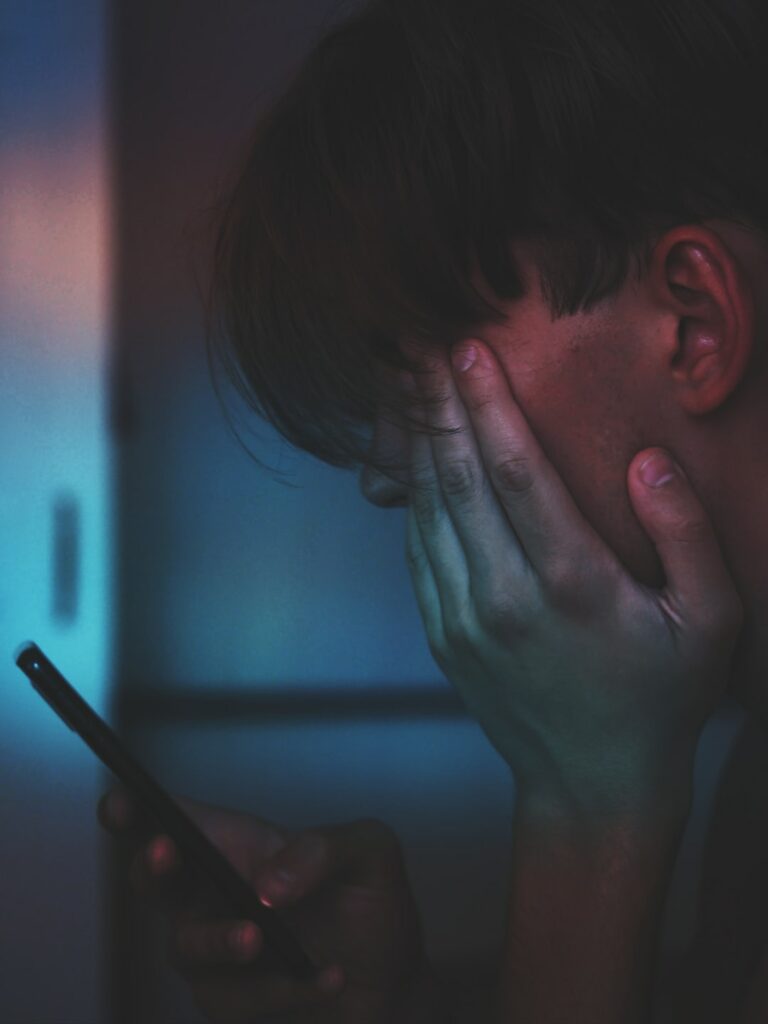Support your teen to get better sleep
We sat down with Kane one of our Adventure Therapists to discuss the importance of sleep in adolescence and how best to support teens in our lives to get better sleep. Here’s what he had to say.
Why are healthy sleep patterns particularly important for teens, and are there any developmental factors that can affect their ability to get adequate sleep?
The teenage years are a developmental time that can often be marked by late nights and difficulty waking up early. As puberty onsets, it is suspected that teenagers have an increased neural sensitivity to light which can cause the brain to revise its regulation of sleep. Teenagers can often follow a different sleep cycle to adults (causing them to sleep later) which can lead to inevitable clashes with commitments such as early starts at school. However, teenagers still need about 9 hours of sleep per night. Lack of sleep can lead to poor executive functioning, anxiety, depressed mood and engagement in high risk taking behaviours. Adequate sleep supports the growth and development of the teenage brain including memory consolidation of the day’s learning. A good night sleep also supports healthy functioning of the immune system which helps to fight off disease. Thinking, responding to others, handling your emotions, problem solving, remembering are all impacted by your level of sleep.
How much sleep should teens be getting, and why is sleep important during this age?
As mentioned above, Teenagers need about 9 hours of sleep per night. The Australian sleep foundation recommends that teenagers between the ages of 14-17 receive 8-10 hours of sleep with less than 7 hours being considered inadequate and more than 11 hours considered too much. The benefits of a good night sleep are extensive in addition to the benefits listed previously, a poor sleeping habit can also affect your insulin levels in your body which can result in weight gain. Your stress hormones can rise in your body which will likely make you feel lousy. Plus it is likely that a lack of sleep will make you feel easily frustrated and irritable with other people.

What are the pros and cons of a teenager using tech and phones etc. before bed?
Most technology is specifically designed to keep you engaged. Apps like Snapchat, Tiktok, Facebook and Instagram are competing and mining for your attention. This in itself can be an issue when trying to switch off and go to bed. However, in addition, phones, computers and other devices emit a blue light which tricks the brain into thinking that it is daytime. This interferes with our sleep because the blue light not only affects our brains but also affects our hormone, melatonin. Melatonin is the hormone that is responsible for making us feel sleepy and supporting us to fall asleep. Therefore it is not recommended that young people use these devices directly before going to sleep.
There is an app called The Sleep Ninja developed by the black dog institute that can be used by young people to support healthy sleep hygiene through supporting them to become aware of any habits that are negatively affecting their sleep patterns and it uses cognitive behavioural strategies to change unhelpful sleep strategies.
How can you as a parent support your teen to get better sleep (and how should parents approach the topic of pre bed routines, bedtimes etc. in a way that teens will accept)?
Lead by example and develop your own sleep routine. In addition, have a conversation with your teenager and explain to them why it is important to have a good night’s sleep and how it can benefit them. Empower young people with the information to make healthy choices and support them in the process with guidance. Praise them when they do well and even reward them for positive changes.
Parents can also help teenagers by supporting them to develop their own sleep routine. Note, it’s important that young people are supported and it’s not a top down authoritative approach that teenagers will likely rail against. Allow them to develop sleep rituals including things they like and excluding things they don’t like.
Some suggestions would be turning off all electronics devices an hour before bed and dimming lights half an hour before sleep. Spend some time with your young person talking about the effects of social media on attention and blue light.
Remember social media is addictive and stimulating, the blue light emitted from these devices tricks our brain into thinking it’s daytime. Avoid using the bed for other activities such as school work and watching TV. Instead, try reading a book, listening to calming music, meditations, or relaxing with a pet.
To support your teen to get better sleep avoid caffeine, tea, sugary drinks and eating chocolate late in the day or in the evening. These are stimulants that can keep you awake or cause you to wake up once asleep. You could include a warm bath or a glass of milk before bedtime. Milk contains tryptophan which the body can convert to serotonin and melatonin which can help you feel relaxed and sleepy. Journaling can be a helpful tool too, to release the day’s thoughts so that you’re not overthinking and analysing the day’s events whilst trying to fall asleep. Finally, try to stick to the same bedtime, this will help the body to know what to expect and fall into a pattern.



